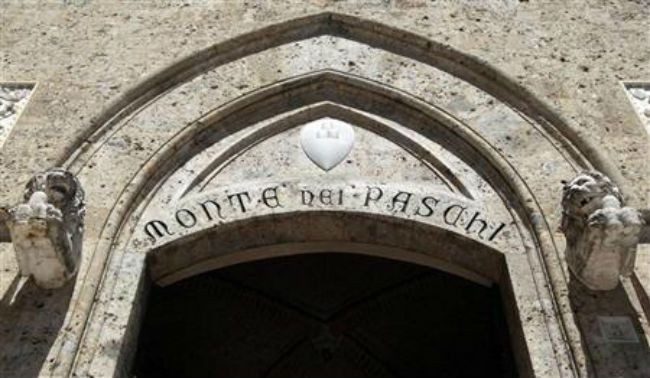
The terms of a state bailout scheme for Banca Monte dei Paschi di Siena (BMPS.MI), Italy's third biggest lender, could pose more challenges to the bank's performance, the European Central Bank said.
The ECB, which will supervise euro zone's lenders from March 2014, also said on Thursday it was told by the Italian government too late into the process about the details of the rescue.
Monte dei Paschi was forced to request state aid after failing to meet tougher capital requirements set by the European Banking Authority.
Under the scheme, approved this week by the European Commission and currently before the Italian parliament, Monte dei Paschi will issue 3.9 billion euros ($5.17 billion) of bonds to the treasury.
After months of negotiations with the European Union, Italy changed the terms of the bailout, allowing Monte dei Paschi to pay interest of 9-10 percent on those bonds through more bonds of this kind.
The changes are intended to make it less likely the Italian treasury will have to take a stake in the bank if it makes a loss, as is set to be the case this year and possibly also 2013.
However, the ECB said issuing more bonds to pay for the coupon would add to the bank's debt burden in an already difficult economic environment.
"This could pose further challenges to the bank's performance in the near term and impair its capacity to redeem (the bonds) in a timely manner," the ECB said in an opinion posted on its website.
It said it would be preferable for the bank to issue new shares to the treasury to help pay interest - an option that is possible under the scheme but is not favored by the treasury or by the bank.
The opinion is not binding but the ECB's future role as the euro zone chief bank watchdog adds to its weight.
Rome changed the original terms of the bailout after Brussels demanded that any new shares issued by Monte dei Paschi to the treasury be valued at market prices.
This would have given the treasury a stake of around 7 percent in the bank if, as expected, it makes a loss in 2012.
Analysts said that keeping the treasury out benefits the bank's existing shareholders and its top investor - a charitable foundation with strong ties to local politicians - because they would not have their stakes diluted.
© Thomson Reuters.




